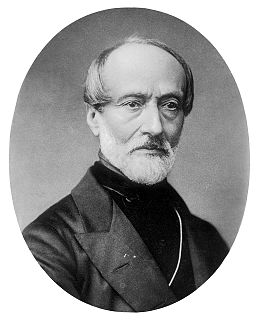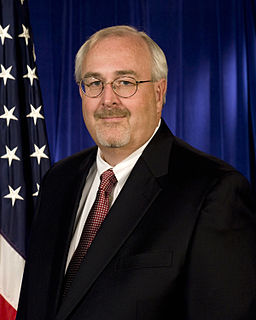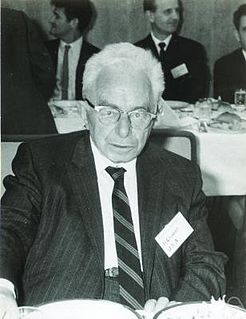A Quote by Albert Einstein
Science is the century-old endeavor to bring together by means of systematic thought the perceptible phenomena of this world into as thorough-going an association as possible.
Related Quotes
Science is the century-old endeavour to bring together by means of systematic thought the perceptible phenomena of this world into as thorough-going an association as possible. To put it boldly, it is the attempt at a posterior reconstruction of existence by the process of conceptualization. Science can only ascertain what is, but not what should be, and outside of its domain value judgements of all kinds remain necessary.
Most people don't put things together. Geologists study the surface of the earth and geological phenomena. Meteorogists study the weather. That isn't science. Science is the study of all things that affect human beings. They have to be together! A meteorologist has difficulty talking with a sociologist, because they don't understand each other. You can't teach sciences in 'bits'; you have to bring it all together. Science is a way of thinking - a way at arriving at conclusions without your own opinion in it.
What do you think science is? There is nothing magical about science. It is simply a systematic way for carefully and thoroughly observing nature and using consistent logic to evaluate results. So which part of that exactly do you disagree with? Do you disagree with being thorough? Using careful observation? Being systematic? Or using consistent logic?
In no other field of scientific endeavor do otherwise intelligent people feel free to make public claims based on prejudice and ignorance. Yet in relation to psychic phenomena, committed materialists feel free to disregard the evidence and behave irrationally and unscientifically, while claiming to speak in the name of science and reason. They abuse the authority of science and bring rationalism into disrepute.
What led me to my science and what fascinated me from a young age was the, by no means self-evident, fact that our laws of thought agree with the regularities found in the succession of impressions we receive from the external world, that it is thus possible for the human being to gain enlightenment regarding these regularities by means of pure thought
To this day, we see all around us the Promethean drive to omnipotence through technology and to omniscience through science. The effecting of all things possible and the knowledge of all causes are the respective primary imperatives of technology and of science. But the motivating imperative of society continues to be the very different one of its physical and spiritual survival. It is now far less obvious than it was in Francis Bacon's world how to bring the three imperatives into harmony, and how to bring all three together to bear on problems where they superpose.
Science as we now understand the word is of later birth. If its germinal origin may be traced to the early period when Observation, Induction, and Deduction were first employed, its birth must be referred to that comparatively recent period when the mind, rejecting the primitive tendency to seek in supernatural agencies for an explanation of all external phenomena, endeavoured, by a systematic investigation of the phenomena themselves to discover their invariable order and connection.
Mathematical analysis is as extensive as nature itself; it defines all perceptible relations, measures times, spaces, forces, temperatures:;; this difficult science is formed slowly, but it preserves every principle which it has once acquired; it grows and strengthens itself incessantly in the midst of the many variations and errors of the human mind. It's chief attribute is clearness; it has no marks to express confused notations. It brings together phenomena the most diverse, and discovers the hidden analogies which unite them.
Mathematics has two faces: it is the rigorous science of Euclid, but it is also something else. Mathematics presented in the Euclidean way appears as a systematic, deductive science; but mathematics in the making appears as an experimental, inductive science. Both aspects are as old as the science of mathematics itself.
Poetry is related to philosophy as experience is related to empirical science. Experience makes us acquainted with the phenomenon in the particular and by means of examples, science embraces the whole of phenomena by means of general conceptions. So poetry seeks to make us acquainted with the Platonic Ideas through the particular and by means of examples. Philosophy aims at teaching, as a whole and in general, the inner nature of things which expresses itself in these. One sees even here that poetry bears more the character of youth, philosophy that of old age.




































